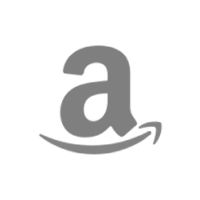When you try to become more productive, you don’t get there by mere willpower. In order to attain peak productivity, you’ve got to have a plan. In this article, you’ll learn an easy-to-follow plan that will dramatically improve your productivity. The secret is simple — discovering the best time of day to work.
If you follow this plan, you will become more productive. It’s just that simple. By finding your ideal time of day for productive work, you can achieve an unstoppable flow of productivity. Productivity isn’t just about cool inbox tricks or nifty time management strategies. Those are important, but it’s more — it’s about harnessing energy and time to do more and better work.
First, this article discusses the role of energy in productivity. Then, you will discover the five guidelines for getting in the zone of productivity in your own schedule and workday.
Productivity Is All about Energy
Let’s set the stage for the plan. As we do so, there’s an essential principle to grasp: Productivity is about energy.
In the bestselling book by Jim Loehr and Tony Schwartz, The Power of Full Engagement, the authors make the case that “managing energy, not time, is the key to high performance and personal renewal.” The operative theory of the book is that using one’s energy correctly enables an individual to work at a more productive level.
That’s not to say that time has nothing to do with it! Time and energy are locked in an symbiotic relationship. That’s why you manage your energy during the right time of day. Productivity is more than the sum of your time management techniques. Productivity requires that you discover the blend of your resources — time and energy — that allows you to reach maximum productivity. In order to successfully manage time, you must also competently manage energy.
Just as time is a limited resource, so is energy. You must spend both time and energy in a strategic way to 1) make the best use of both, and to 2) conserve and spend each of them as wisely as possible.
Prepare to Discover Your Productivity Zone: Get Enough Sleep
In order to find your productivity zone, your body needs to be prepared. The most important feature of being prepared is having sufficient rest. Before you can expect to find your zone, you need at least three consecutive nights of good sleep.
You simply can’t be productive if you’re running off of four hours of sleep a night. It’s obvious that your level of sleep is directly tied to your level of energy. What is not quite as obvious is that lack of sleep can destroy key cognitive processes that contribute to productivity. Lack of sleep corrupts your attention span, destroys alertness, ruins concentration, impairs reasoning, cripples problem solving, and hampers decision making. All of these brain-intensive activities are essential to productivity.
Let me say it simply: You will not be productive unless you get enough sleep.
It may seem overly simplistic to discuss something as mundane as sleep in an article about productivity. However, in order to be productive, you must be well rested. There’s no other way.
Many of us function under the delusion that we don’t have enough time to sleep. The contrary is true. We don’t have enough time not to sleep. Let’s say, for example, that you sleep four hours in a 24-hour period. Then, you work/play for the remaining twenty. While you may have been awake and functional for twenty hours, your work output may be equivalent to six hours, and your play is not enjoyable. If, however, you sleep for eight hours and work/play for the remaining sixteen, you will be far more productive and be engaged enough to enjoy both work and play.
Sleep is your biggest ally in the pursuit of productivity.
Now, let’s find your productive zone.
5 guidelines for discovering your best time of day
1. Determine your optimal part of the day to work.
The first step in discovering your best time is to do a careful self-analysis. In this step, your goal is not to set a strict schedule, but to find the broadest part of the day that you are going to be more productive. Here are two questions to guide you to this discovery.
- Question 1: When during the day do I have the greatest amount of energy and concentration? When do you feel the most alive, energized, creative, optimistic, and enthusiastic? For me, this is the morning. For my wife, it’s the evening. That’s why our work schedules blend, allowing us to share childcare and household duties while still maintaining full time work schedules. Discover when you’re at your peak — morning, afternoon, evening, etc. It could be that you’re at peak efficiency at more than one time, say the early morning and the late afternoon. That’s fine, too.
Tip: Most of us are not wired to have strong periods of productivity following a big meal. There is, however, a correlation between exercise and concentration. Research suggests that our concentration and mental acumen are sharpened following at least thirty minutes of vigorous exercise.
- Question 2: When do I have the fewest interruptions and distractions? Part of productivity is being able to shut out the distractions that cripple concentration. Now that you have a general part of the day when you have the highest amount of energetic output, determine when the major distractions are. If you have an unavoidable distraction right in your productive zone, you will need to break up your productive zone to make way for this built-in interruption. Let’s say you pick the kids up from school from 3-4 every day. However, your most productive time is the afternoon. If this is the case, you can isolate two productive zones from 1-3pm, and perhaps from 4-5:30pm. I’ll discuss managing interruptions in detail below.
Tip: Interruptions and distractions fall into two categories, 1) planned and 2) unplanned. You can set up your schedule around planned distractions. When it comes to unplanned distractions, you should determine the time of day when unplanned distractions are least likely to occur. For me, unplanned distractions are least likely to happen very early in the morning when my kids are sleeping.
2. Isolate three 90-minute periods for concentrated work.
Now that you’ve determined the phases of your highest energy, it’s time to carve out several 90-minute periods. These 90-minute sessions are your productive bursts.
- Why 90 minutes? Work cycle research has shown that most people work best in 90-minute cycles followed by a reprieve. Nathan Kleitman, a sleep scientist during the mid 1900s discovered the 90-minute pattern in sleep and energy expenditure. Energy/productivity guru Schwartz recommends that workers “build at least one period of uninterrupted focus each day for 60 to 90 minutes and see how much more you get done.” This principle is built upon our body’s ultradian rhythms, and it’s futile to fight against them even with artificial stimulants such as caffeine and sugary intake. As Drake Bauer wrote for the Fast Company, “The 90-minute cycle works.”
- Why three periods? Three times 90 minutes is 270 minutes — four and half hours. This may not seem like a ton of time to do your work, but if you’re in a productive zone, you will accomplish more work than you would in an 8-hour marathon of ennui and fatigue. Besides, most of us will not be able to find more than five hours in any given day where we can be at maximum productivity. When we factor in life, sleep, interruptions, and ordinary scheduling constraints, it’s tough to find more than three cycles in any given 24-hour period. Finding three cycles allows you to be more flexible with your productive zones, and work around the other important things in your life.
- What happens in between each cycle? That’s up to you and your unique situation. What you should not do, however, is work — or at least work like you’ve been working for the past 90 minutes. You should take a break — a good, solid, get-up-and-move-around break. I have two 90-minute cycles in the morning, followed by a three and half to four hour break. After that, I finish out my workday in the late afternoon with a final 90-minute cycle.
3. Do the right work at the right time.
Not all work is equal. Different types of work require different levels of energetic output. Some work may be completely draining mentally. Other types of work might actually be energizing and exciting. You want to do the most demanding tasks during your time of greatest energy, and distribute less demanding tasks across your times of waning mental strength. Here are some examples.
I’m going to create the business proposal first thing in the morning since it requires a lot of thought. Then, I’ll make time for the mindless meetings in the afternoon.
During my most productive time, I’m going to write a ton of code. At the end of the day, I’ll handle all the emails from clients.
It may seem counterintuitive to do your hardest and most challenging tasks first. Won’t that leave you wasted for the rest of the day? Not exactly. As Brian Tracy explains in Eat that Frog, getting monumental tasks completed in the early part of the day is not enervating, but energizing. The sense of completion and success signals psychological reward centers in our brain that fuel further productive work. Rather than drain us, completing big tasks has the power to motivate us.
4. Tolerate strategic interruptions.
You have a life, and you need to factor that into your productive zone discovery. There are kids to care for, meetings to attend, meals to eat, and maybe naps to take. How do interruptions factor into your best time of day to work? As explained above, we work best in 90-minute cycles. Any repetitive work that extends beyond that time will begin to diminish in quality. This built-in cycle of productivity allows you to embrace your interruptions at the right time.
My greatest and most enjoyable interruption happens at lunch time. I come home to my family, enjoy a meal, play with the kids, and just chill for a few hours. This is an unorthodoxy for those who swear by the nine-to-five rule, but since such unorthodoxy allows insane levels of productivity, it’s okay. When I return from my three-hour hiatus, I’m energized, creative, and chomping at the bit for another 90-minute zone to finish out my day
When you look at your day, find those times where the distractions are the lowest and your energy is the highest. Then look at your interruptions. Enjoy them. Use those interruptions to enhance your productivity, not hamper it.
5. Use creativity to your advantage.
There is one universal limitation we all work with — the twenty-four hour day. Within these allotted hours, we must find our most productive work times. If you discover that the traditional nine-to-five is your productive zone, so be it. However, there are many hours beyond this conventional timeframe that might just be your most productive. Confront your limitations, then discover your best time.
To do that, you might just have to think outside the box.
We all face other limitations that require creative solutions. When Nelson Mandela was imprisoned in a South African prison, he wrote his memoirs during the night and slept during the day. He was enormously productive in this secret project, completing a massive amount of writing during a very short amount of time. During the eight years of Eisenhower’s presidency, he started work at 6am and worked until 3 or 4pm. These hours enabled him to get more done than most people, and still golf more frequently than any other American president in history. Some uberproductive people sleep in, goof off half the day, and step into their productive stride around 8pm. Then, from 8pm to 3 or 4am they hit their stride and churn out enormous amounts of work.
What works best for you? The key is creativity. Look at the blank slate of 24 hours, factor in your challenges, and find the time that works best.
4 productivity zone tips
It’s not just mornings.
Let’s get rid of the morning myth. There’s always this elitist chatter going on that mornings are the only time to be productive. That’s true for some people, but not for everyone. The morning-loving crew is convinced that the mornings are the best time for them to get things done, because their experience corroborates it. If you give mornings your best effort, but fail miserably, don’t sweat it. Find the time that works best for you — even if it sounds totally bizarre — and use that. Productivity isn’t about following rules as much as it is breaking the rules to make things work for you.
Be skeptical of the nine-to-five.
The nine-to-five workday is a persistent vestige of the industrial reformation and its subsequent generational refinements. Today, with remote work on the rise, and globalization opening up the 24-hour cycle to endless variations of work and sleep, you can choose when and how you work. If you are institutionalized into the strictures of a nine-to-five workday, then you must work within these limitations or campaign for change. If, however, your schedule is your own to mold to your preferences, dispense with the nine-to-five model and start from scratch based on your own personal rhythms, lifestyle, family needs, and personal productivity zones.
Guard your productive zone.
You will not be productive unless you maintain the practice of your 90-minute cycles that fall within your productive zone. Do everything in your power to protect against incursions into these times. Meetings, phone calls, appointments, meals, etc., should all take a back seat to your important productive cycles. Hey, it’s only 4.5 hours of every day! That leaves you more than 19 hours to do everything else!
Managers, free your workers!
If you manage knowledge workers, give them the freedom to choose their own schedules. If there is little to no customer interface time or important meetings, give them the freedom to choose when (and where) they do their work. Your goal is to empower them to do more and to do it better, not to have them filling desks and punching clocks. I work as a project manager for a distributed team in various time zones, so this is a built-in part of my job. If you are tied to a conventional office, do what you can to liberate your workers to find their zones and become better workers.
Finally, be free to have fun. It’s way too easy to become a slave to productivity, and forget about the freedom and fun that it allows! Productivity is a strategy that allows you to enjoy life, not become dominated by schedules and tasks. The only way that you’ll enjoy the productive life is if you’re being productive and having fun. Do both with a passion.







